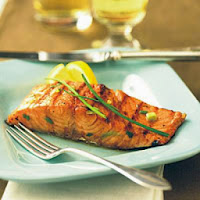Just this morning, I was reminded of this old post. My son, daughter-in-law, granddaughter and her boyfriend went out for breakfast. Most of us couldn't finish our meal and someone remarked it didn't look like that much food when they brought it out. I said, "Look at the size of the plates". Everyone then noticed how large the plates were. Plate size is very important to the meal.
I have talked about this before on this blog but it has been a few years so I am going to repeat, "Studies have shown that cutting your dinner plate from 12-inches to 9-inches can cut portion sizes in half". This is one of the easiest ways to cut back on calories without feeling hungry. Would you believe that simply by eating off a luncheon size plate instead of a dinner plate can cut around 231 calories per meal? What an easy way to 'diet'!





.jpg)





.jpg)















.jpg)
.jpg)

.jpg)

.jpg)


.jpg)

